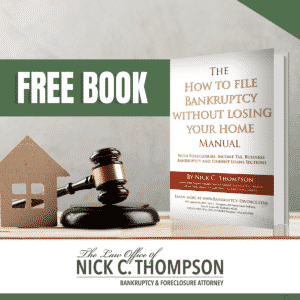Student loans are generally not dischargeable unless the court grants you a hardship discharge. In Chapter 13 the debt may be challenged as fraudulent or otherwise being unenforceable. Student loans are not enforceable when the school closes prior to the student completing his education or if the debtor didn’t qualify for the loan or school.
Student Loans in Chapter 13 Bankruptcy
⎆ The Chapter 13 hardship adversary proceeding
Chapter 13 might also allow the debtor to repay the student loan a higher amount than his other unsecured debts. The debtor may additionally file an adversary proceeding proving the following:
- Every option has been taken by the debtor to attempt to repay the student loan (including income-contingent loans.)
- The debtor has no disposable income to repay the student loan.
- The debtor will never have the disposable income to repay the student loan.
- Not granting a hardship discharge creates an “undue hardship” on the debtor and the debtor’s dependents.
In a hardship adversary proceeding, you are essentially saying the student loan is never going to be collectible. It also says that future collections are abusive to the debtor and worsen the plight of the debtor needlessly.
If you can’t prove that statement then you probably can’t hardship discharge the student loan in Chapter 13. Often the best strategy in Chapter 13 is to attempt to hardship discharge part of the student loan instead of attempting to discharge all of the loans.
Lenders normally respond to your adversary proceeding. However, you must answer questions in discovery to educate and prove to the judge that you can’t reasonably repay the debt. So, this is your opportunity to explain to the judge that your loan dischargeable in bankruptcy due to hardship.
Remember your loan makes the lender a profit. So, of course, he doesn’t want you to destroy his very profitable income. The facts are that the lender receives full reimbursement for expenses he spends to defend the case so, he loses nothing if he viciously defends the case.
Also, remember when your guaranteed private student loan goes into default, private lenders make on average 25 times the profit as loans that you keep current.
Also, be aware that student loan hardship discharges exist under programs other than bankruptcy such as if your school closes, if you now have a disability, or if fraud exists in your loan.
 Resources for Bankruptcy
Resources for Bankruptcy
Hardship Discharge Student Loans
Student Loan Statute of Limitations
Student Loans in Bankruptcy – Hardship Discharge
Chapter 7 Student Loan Hardship Discharge
Discharge Private Student Loans in Bankruptcy
Student Loan Collection Defense Lawyer
Do you need help managing your student loan? Contact my office right away to start the conversation. Nick C. Thompson, Attorney: 502-625-0905



